After defeating Napoleon in the Battle of Leipzig in October of 1813, representatives of the major European powers gather in Vienna from September 1814 to June of 1815. Their intention is to restore the power of the ancient rulers on the basis of the principle of legitimacy: the rulers prior to the Napoleonic era are to be resettled on their thrones. Bonaparte, during the nearly fifteen years of his reign, ousted many legitimate representatives of various dynasties, favoring the creation of local pro-French governments, as in the case of the Cisalpine Republic or by replacing the rulers with politicians loyal to him, as happened in Naples with Joachim Murat.
France thus returns to the Bourbons, with Louis the XVIII, thanks to the skill of the foreign minister Talleyrand. Prussia greatly increases its territory and the Hapsburg Empire, under the leadership of Prince von Metternich, it achieves a stable influence on the Balkans and northern Italy. The Commission sees the restoration of the Savoy dynasty in Piedmont, the pope and the Grand Duke of Tuscany in the centre of Italy, the Bourbons in Naples. Alexander I of Russia is enlarged at the expense of Poland, and finally Britain's George III, takes possession of Malta and numerous bases in the Caribbean, Africa and the Far East. But the most important goal achieved by the Congress is the birth of an alliance between the major European powers who commit themselves to providing aid in the case of of internal uprisings and revolutions. Even as the Congress is taking shape, Napoleon, who was exiled on the Island of Elba, flees in March of 1815 and lands in France, where he is welcomed enthusiastically by the people of Paris, gathering a new army around him who moves against his opponents.
Congress decides to quickly move against him with a new alliance led by the Duke of Wellington. Napoleon is finally defeated at Waterloo, June 18, 1815 and exiled to St. Helena, a small island in the Atlantic. The Congress redraws the map of Europe, but the intention of restoring the old regimes and to erase the past proved ephemeral. Indelibly marked by the French Revolution, Europe will soon be the scene of revolutionary movements, that will change absolutist orders in the constitutional sense.
France thus returns to the Bourbons, with Louis the XVIII, thanks to the skill of the foreign minister Talleyrand. Prussia greatly increases its territory and the Hapsburg Empire, under the leadership of Prince von Metternich, it achieves a stable influence on the Balkans and northern Italy. The Commission sees the restoration of the Savoy dynasty in Piedmont, the pope and the Grand Duke of Tuscany in the centre of Italy, the Bourbons in Naples. Alexander I of Russia is enlarged at the expense of Poland, and finally Britain's George III, takes possession of Malta and numerous bases in the Caribbean, Africa and the Far East. But the most important goal achieved by the Congress is the birth of an alliance between the major European powers who commit themselves to providing aid in the case of of internal uprisings and revolutions. Even as the Congress is taking shape, Napoleon, who was exiled on the Island of Elba, flees in March of 1815 and lands in France, where he is welcomed enthusiastically by the people of Paris, gathering a new army around him who moves against his opponents.
Congress decides to quickly move against him with a new alliance led by the Duke of Wellington. Napoleon is finally defeated at Waterloo, June 18, 1815 and exiled to St. Helena, a small island in the Atlantic. The Congress redraws the map of Europe, but the intention of restoring the old regimes and to erase the past proved ephemeral. Indelibly marked by the French Revolution, Europe will soon be the scene of revolutionary movements, that will change absolutist orders in the constitutional sense.
RELATED


THE COLD WAR


HOW LONG DO WE LIVE?
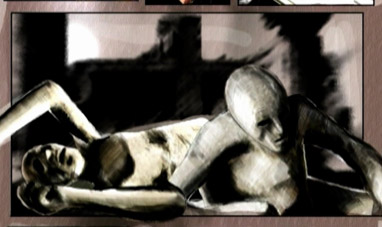

THE DESTRUCTION OF POMPEI


ITALIAN IRREDENTISM


THE BIRTH OF THE UNITED NATIONS


THE SUEZ CRISIS


ASIAN TSUNAMI 2004


FIVE DAYS OF MILAN


THE TROJAN WAR


THE BATTLE OF HASTINGS


THE FIRST GULF WAR


THE BIRTH OF ISRAEL


WORLD WAR I


THE TAIWAN ISSUE


THE RAPE OF THE SABINE WOMEN
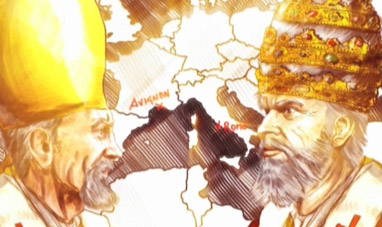

WESTERN SCHISM, THE


FOUNDING THE PEOPLE'S REPUBLIC OF CHINA


TANGENTOPOLI


THE INDUSTRIAL REVOLUTION
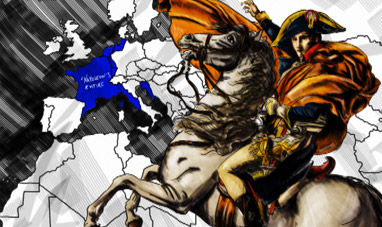

THE BATTLE OF AUSTERLITZ


THE KOSOVO WAR


THE KINGS OF ROME


THE EXPEDITION OF THE THOUSAND


PERESTROIKA


THE BALKAN WARS OF THE 1990S


THE OUTBREAK OF WORLD WAR I


THE FIRST INTIFADA


THE FIRST CHINESE EMPEROR AND THE QIN DYNASTY


THE ABU GHRAIB SCANDAL
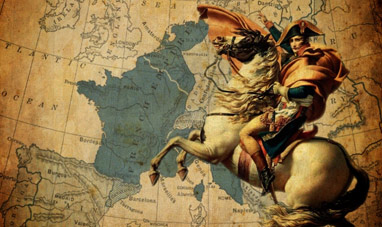

NAPOLEON BONAPARTE


THE SECOND INTIFADA


SECOND ITALIAN WAR OF INDEPENDENCE
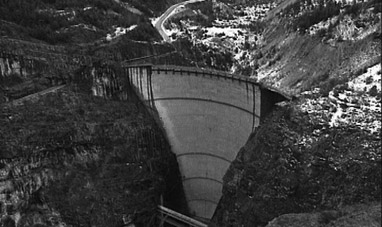

THE VAJONT DISASTER


THE SPANISH CIVIL WAR


THE FIRST MOON LANDING


THE ARGENTINE DICTATORSHIP, 1976-1983
